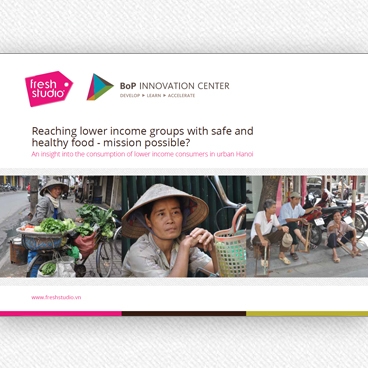DAK LAK – Fresh Studio and several local partners are implementing a two year program to professionalize the avocado agricultural sector of Vietnam.
The best avocados in Vietnam come from Dak Lak Province, where about 250,000 avocado trees are grown. After an extensive supply chain analysis, all actors in the avocado sector were brought together and an action plan was developed.
One of the main activities was the creation of a consumer awareness campaign to grow the domestic market demand for avocado. Another important activity was to create a higher quality avocado, and to determine an introductory label (DAKADO) which would later be harnessed as a real brand.
In a unique cooperation with Vietnam’s largest supermarket chain, Saigon Co.Op Mart, and Vietnam’s largest wholesaler, Metro Cash & Carry, the avocado sector will present itself to Vietnamese consumers through the ‘Discover the magic of avocado’ campaign. This campaign will run from the 23rd until the 29th of July in the stores of Vietnam’s largest supermarket chain, Saigon Co.Op Mart, and from the 9th until the 16th of August in the stores of Metro Cash & Carry Vietnam.
The avocado is relatively new in Vietnam, and consumers are not yet familiar with the fruit’s nutritional value and uses. For example, few know that the avocado contains more than 14 vitamins and minerals, almost as much protein as milk.
In Co.Op Mart stores in Ho Chi Minh City, special avocado promotion teams will inform consumers about the magical values of avocado, and inspire consumers to discover new ways of preparing avocado through presenting versatile recipes, and offering taste-tests of the Dak Lak variety. To demonstrate dishes made with avocado, the campaign in METRO’s An Phu store in August will include a cooking demonstration by a professional chef. For one week consumers in-store will discover the ‘magic avocado brings to your kitchen, your health, your beauty’ and of course, to nature.
This consumer campaign is part of the not-for profit project titled ‘Development of an avocado value chain from Dak Lak province’ (DAKADO for short). The DAKADO project aims to create a supply chain which will deliver Dak Lak quality avocados to Vietnamese consumers, while resulting in improved benefits for all actors involved in the chain. To achieve this goal, the DAKADO project team facilitated a dialogue between farmers, collectors and traders, which resulted in a cooperative agreement to ensure high consumer quality, through improved avocado harvesting and post-harvest operations.
Now, for the first time in Vietnam, avocados will be harvested in a professional way, transported with care, packed in specially designed trays, and labeled with the DAKADO logo. In the coming eighteen months more improvements will be made – avocado cultivation training programs and cold storage experiments will be implemented. The potential for avocado processing (avocado oil, for example) will be assessed. In 2008, the DAKADO label will be further developed into a consistent quality brand.
The DAKADO project is funded by the German Ministry for Economic Cooperation and Development within the framework of the Small and Medium Enterprise Development Program of the Ministry of Planning and Investment and GTZ. The project follows a so-called ‘value chain’ approach. This means that strategies have been developed for all stages in the chain, from planting avocados to eating avocados. The DAKADO work is carried out by the Center of Science and Technology Application (CSTA), the Western Agriculture Research Institute (WASI) and Fresh Studio.
For more information about the project and avocado facts please visit : www.dakado.vnAlso interesting to read:




